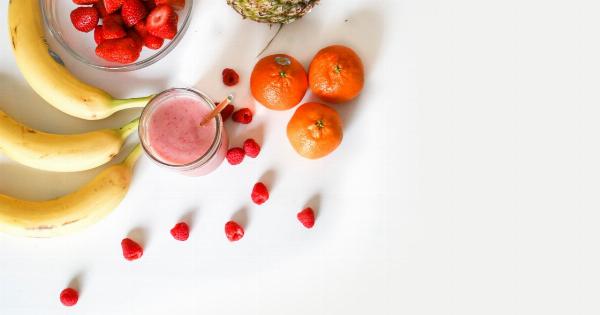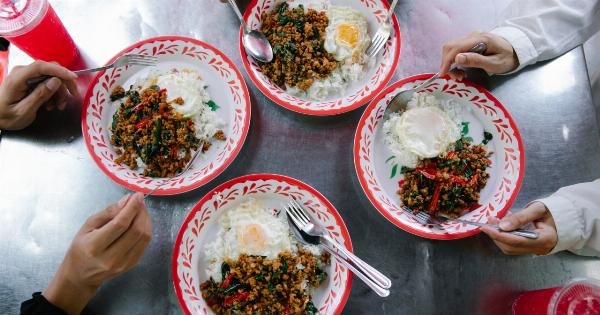Iron is an essential mineral that plays a crucial role in maintaining overall health and well-being. It is a vital component of hemoglobin, the protein in red blood cells that carries oxygen to various parts of the body.
Without adequate iron intake, your body may not be able to produce enough healthy red blood cells, leading to iron deficiency anemia.
The Importance of Iron Absorption
While increasing your iron intake through diet or supplements is important, it is equally crucial to focus on iron absorption.
The body’s ability to absorb iron from food varies depending on several factors, including the type of iron consumed, other nutrients present in the meal, and individual factors such as age and overall health. Here are the dos and don’ts of iron absorption to help you optimize your dietary iron intake:.
Do: Choose Iron-Rich Foods
Incorporating foods that are naturally rich in iron is an excellent way to ensure adequate iron intake. Some of the best sources of dietary iron include:.
- Red meat such as beef, lamb, and liver
- Poultry, especially chicken and turkey
- Seafood like shellfish, oysters, and clams
- Legumes, including lentils, chickpeas, and soybeans
- Dark green leafy vegetables such as spinach and kale
- Fortified cereals, grains, and bread
Don’t: Rely Solely on Plant-Based Iron Sources
Although plant-based iron sources are important, they contain non-heme iron, which is not as easily absorbed by the body compared to heme iron found in animal products.
To enhance the absorption of non-heme iron, it is essential to consume it alongside vitamin C-rich foods. Adding citrus fruits, strawberries, bell peppers, and tomatoes to your meals can significantly increase iron absorption.
Do: Pair Iron-Rich Foods with Enhancers
Certain foods act as enhancers and help increase the absorption of iron. These enhancers include:.
- Foods high in vitamin C, such as oranges, lemons, and kiwis
- Meat, fish, and poultry (contain heme iron, which improves the absorption of non-heme iron)
- Foods rich in beta-carotene, like carrots and sweet potatoes
- Broccoli, Brussels sprouts, and other cruciferous vegetables
- Foods containing sulfur, such as garlic and onions
Don’t: Consume Iron Inhibitors with Iron-Rich Foods
Just as certain foods enhance iron absorption, some substances inhibit it. To maximize iron absorption, avoid consuming iron-rich foods in combination with the following inhibitors:.
- Calcium-rich foods, including dairy products
- High fiber foods, such as bran and whole grains
- Tea and coffee, particularly when consumed with meals
- Phytates found in legumes and whole grains
- Oxalates present in spinach, beet greens, and rhubarb
Do: Cook with Cast Iron Cookware
Cooking with cast iron cookware can slightly increase the iron content of your meals, especially those that are acidic or contain a high moisture content. The iron leached from the cookware can contribute to your overall iron intake.
However, it is important to note that this method might not be sufficient if you have a diagnosed iron deficiency or are at risk of deficiency.
Don’t: Overcook Foods
Overcooking certain foods can cause a loss in their iron content. To retain as much iron as possible, ensure that you cook food for the recommended time and avoid boiling for extended periods.
Steaming, sautéing, and stir-frying are excellent cooking methods to preserve the iron content in food.
Do: Space Out Iron Supplements
If you require iron supplements, it is crucial to space them out throughout the day. Taking large doses all at once can affect the body’s ability to absorb the iron efficiently.
Additionally, taking iron supplements with vitamin C or orange juice can aid absorption.
Don’t: Consume Iron Supplements with Inhibitors
Avoid taking iron supplements with foods or beverages that inhibit iron absorption. This includes calcium-rich foods, high-fiber foods, coffee, and tea.
It is best to consult a healthcare professional or pharmacist for guidance on the proper consumption of iron supplements.
Conclusion
Iron absorption is a critical factor that influences the effectiveness of dietary iron intake. By following these dos and don’ts, you can optimize the absorption of iron in your diet and maintain healthy iron levels in your body.
Remember to include a variety of iron-rich foods, pair them with enhancers, avoid inhibitors, and make mindful choices when it comes to cooking and supplement intake.































